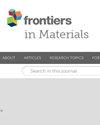新型可持续预制保温墙的耐候性
IF 2.6
4区 材料科学
Q3 MATERIALS SCIENCE, MULTIDISCIPLINARY
引用次数: 0
摘要
外墙是建筑物与外部环境进行热交换的主要媒介,其热损失在建筑能耗中所占比例最大。因此,提高墙体的保温隔热能力对降低建筑能耗具有重要意义。本文开发了一种新型可持续预制发泡聚苯乙烯(EPS)保温墙板,采用不规则柱框架结构。并结合有限元模拟进行了耐候试验,以研究其耐候性能和降解模式。结果表明,在耐候试验中,板材表面没有出现明显的渗水裂缝、粉化、空鼓、剥落等现象。面砖也没有脱落或损坏。墙板的外表面混凝土在正常热胀冷缩过程中受到阻力,膨胀时产生压应力,收缩时产生拉应力。此外,试件的粘结强度在热-雨循环后下降了 8.1%,在热-冷循环后下降了 5.1%,在冻-融循环后下降了 12.1%。在数值模拟中,混凝土墙上不同位置的温度应力对附近混凝土的受力变形有明显的相互制约作用。开裂的风险主要集中在墙体中部和开口周围,尤其是墙体下部。这项研究为夹芯隔热墙板的降解分析和优化设计提供了依据,以实现可持续性。本文章由计算机程序翻译,如有差异,请以英文原文为准。
Weathering resistance of novel sustainable prefabricated thermal insulation wall
External walls, serving as the primary medium for heat exchange between the building and the external environment, has its thermal loss comprising the largest proportion of building energy consumption. Therefore, enhancing the thermal insulation capacity of the wall is of great significance in reducing building energy consumption. In this paper, a novel sustainable prefabricated expanded polystyrene (EPS) thermal insulation wall panel with irregular column frame structures was developed. And weathering tests combined with finite element simulations were conducted to investigate its weathering performance and degradation patterns. The results revealed that In the weathering test, the panel surfaces did not exhibit apparent water seepage cracks, powdering, hollowing, peeling, etc. There was no occurrence of facing brick detachment or damage. The outer surface concrete of the wall panel experienced resistance during normal thermal expansion and contraction, generating compressive stress during expansion and tensile stress when contracted. In addition, the bond strength of the specimens decreased by 8.1% after the thermal-rain cycles, 5.1% after the thermal-cold cycles, and 12.1% after the freeze-thaw cycles. In the numerical simulations, the temperature stress at various positions on the concrete wall had a noticeable mutual restraining effect on the force deformation of the nearby concrete. There was a significant risk of cracking in the middle and around the opening, particularly in the lower part of the wall panel. This study serves as a basis for the degradation analyses and optimization design of the sandwich insulation wall panels for sustainability.
求助全文
通过发布文献求助,成功后即可免费获取论文全文。
去求助
来源期刊

Frontiers in Materials
Materials Science-Materials Science (miscellaneous)
CiteScore
4.80
自引率
6.20%
发文量
749
审稿时长
12 weeks
期刊介绍:
Frontiers in Materials is a high visibility journal publishing rigorously peer-reviewed research across the entire breadth of materials science and engineering. This interdisciplinary open-access journal is at the forefront of disseminating and communicating scientific knowledge and impactful discoveries to researchers across academia and industry, and the public worldwide.
Founded upon a research community driven approach, this Journal provides a balanced and comprehensive offering of Specialty Sections, each of which has a dedicated Editorial Board of leading experts in the respective field.
 求助内容:
求助内容: 应助结果提醒方式:
应助结果提醒方式:


